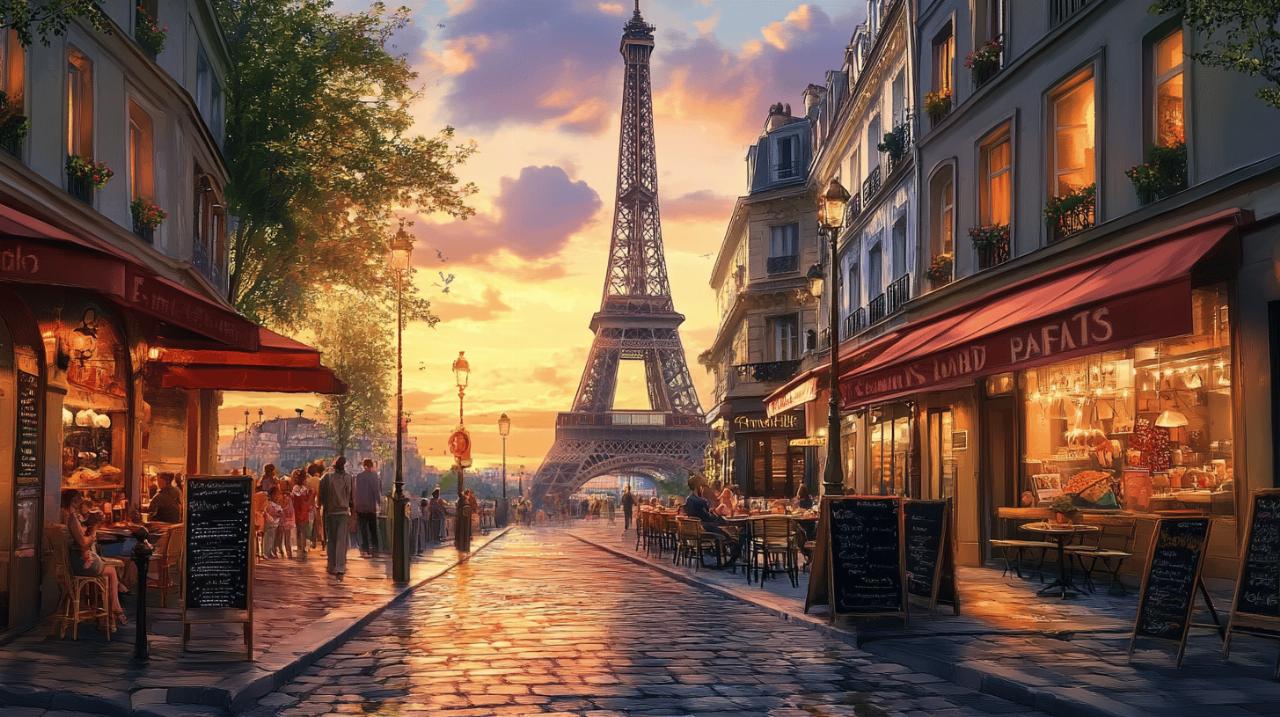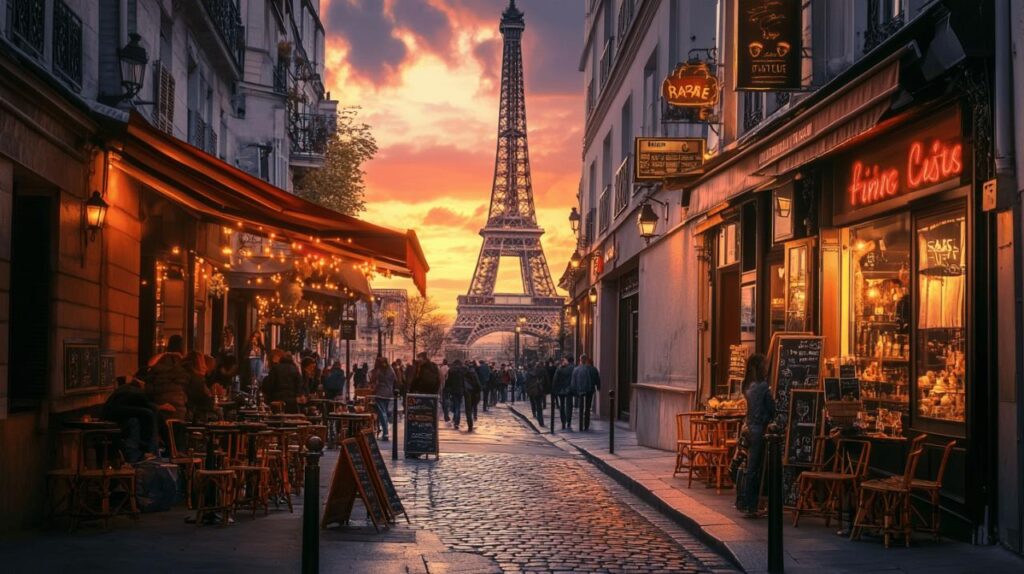France continues to reign supreme as the world's most visited destination, drawing an astonishing 100 million visitors in 2023 with projections soaring even higher for the Olympic year of 2024. This enduring appeal isn't merely happenstance but the result of a carefully cultivated blend of historical richness, cultural diversity, and unparalleled experiences that captivate travellers from across the globe. While many European destinations grapple with overtourism backlash, France has managed to maintain its allure whilst developing sustainable approaches to its tourism industry. Let's explore the multifaceted elements that keep the Hexagon at the pinnacle of global tourism.
The unrivalled cultural heritage of france
The foundation of France's tourism magnetism lies in its extraordinary cultural patrimony, which spans millennia and encompasses everything from prehistoric cave paintings to cutting-edge contemporary art installations. With 45 UNESCO World Heritage sites scattered across its territory, France offers visitors an unmatched concentration of cultural treasures that continue to draw millions annually to experience firsthand the living museum that is France.
Historical landmarks that define the nation
The iconic silhouette of the Eiffel Tower stands as perhaps the most recognisable monument globally, serving as both a symbol of Paris and France as a whole. This engineering marvel welcomes over 30 million tourists to the capital each year. Beyond Paris, the magnificent Palace of Versailles presents visitors with an opulent glimpse into royal French history, while the partially restored Notre-Dame Cathedral continues to inspire awe despite recent challenges. These landmarks are not merely static monuments but living connections to France's storied past that allow visitors to walk through the pages of history.
Museums and Galleries: A Paradise for Art Enthusiasts
The Louvre Museum represents the crown jewel in France's cultural offering, housing masterpieces spanning civilisations and eras within its magnificent walls. Art lovers find themselves spoilt for choice with institutions like the Musée d'Orsay showcasing impressionist works in a converted railway station and the Centre Pompidou displaying contemporary creations in its distinctive inside-out architectural marvel. Beyond permanent collections, France plays host to internationally acclaimed cultural events such as the prestigious Cannes Film Festival, which transforms the Mediterranean coastal town into the global epicentre of cinema each May, further cementing the country's status as a cultural powerhouse.
Gastronomy and wine: a journey through french flavours
French cuisine stands as one of the country's most profound cultural expressions and a primary motivation for many travellers. The French approach to food transcends mere sustenance to become an art form and philosophical statement about life's pleasures. Tourism and gastronomy are so intertwined in France that culinary experiences often form the highlight of visitors' journeys, with memories of meals sometimes outlasting recollections of monuments.
Regional culinary traditions that captivate global palates
Every corner of France boasts distinctive culinary traditions that reflect local history, geography and cultural influences. From the hearty coq au vin of Burgundy to the delicate seafood dishes of Brittany, these regional specialities provide tourists with authentic tastes of French heritage. Traditional recipes like boeuf bourguignon showcase the French talent for transforming simple ingredients into transcendent dishes through technique and patience. The country's gastronomic appeal spans from Michelin-starred establishments to humble village bistros, ensuring memorable dining experiences for every budget and preference. This democratic approach to culinary excellence ensures that food remains an accessible highlight for all visitors.
Wine Regions and Their Contribution to Tourism
The celebrated wine regions of France have developed into destinations in their own right, attracting oenophiles and casual enthusiasts alike to explore vineyards and cellars. Areas like Bordeaux, Champagne, and the Loire Valley combine spectacular landscapes with world-class viticulture, creating immersive experiences that extend beyond mere tasting. Wine tourism has evolved to encompass cycling tours through vineyards, harvest festivals, and educational experiences about terroir and production methods. The opportunity to meet vignerons and understand the philosophy behind French winemaking adds depth to what might otherwise be simply a consumptive experience, fostering deeper connections between visitors and the land.
Infrastructure and Accessibility Across the Hexagon
 France's appeal as a tourist destination is significantly enhanced by its sophisticated transport network and diverse accommodation options. The country has invested heavily in creating an infrastructure that allows visitors to navigate its territory with relative ease, making even remote areas accessible to the determined traveller. This commitment to accessibility represents a crucial advantage in maintaining France's tourism leadership.
France's appeal as a tourist destination is significantly enhanced by its sophisticated transport network and diverse accommodation options. The country has invested heavily in creating an infrastructure that allows visitors to navigate its territory with relative ease, making even remote areas accessible to the determined traveller. This commitment to accessibility represents a crucial advantage in maintaining France's tourism leadership.
Transport networks that connect the country
France boasts an impressive 28,000 kilometres of railway tracks, including 2,800 kilometres of high-speed lines that allow the famed TGV trains to connect major cities quickly and efficiently. This extensive rail network makes car-free tourism not merely possible but often preferable, especially as France takes steps toward more sustainable travel models. Since 2023, the government has implemented bans on domestic flights when train alternatives under 2.5 hours exist, underscoring a commitment to reducing tourism's environmental footprint. For those venturing beyond major cities, regional train services and bus networks provide connections to smaller towns and villages, though some rural areas remain challenging to access without private transport.
Accommodation options for every budget
The French hospitality sector employed 1.3 million people in 2022, reflecting the scale and diversity of accommodation available throughout the country. Visitors can select from luxury palace hotels in Paris to family-run chambres d'hôtes in provincial villages, with options spanning every price point and style preference. The boom in holiday lettings has expanded choices further, though recent legislation allows local councils to implement caps on such rentals to protect residential communities in popular destinations. Tourism investments increased by 1.3% in 2022, reaching €18.6 billion, much of which went toward enhancing and diversifying lodging options to meet evolving traveller expectations, including growing demand for sustainable and authentic experiences.
Diverse landscapes and experiences
Perhaps France's most remarkable tourism asset lies in its extraordinary geographical diversity contained within a relatively compact territory. Few countries offer such varied landscapes within easy reach of one another, allowing visitors to experience dramatically different environments during even short stays. This diversity extends beyond natural settings to encompass distinct regional cultures, architectures, and traditions that make France feel like many countries in one.
From alpine peaks to mediterranean shores
The French Alps present world-class skiing destinations like Chamonix and Courchevel, attracting winter sports enthusiasts from across the globe. Just hours away, the sun-drenched beaches of the Côte d'Azur offer Mediterranean idylls where visitors can bask along 5,533 kilometres of diverse coastline. This remarkable contrast allows France to function as a year-round destination with peak seasons varying by region. Sports tourism forms a significant sector, with iconic events such as the Tour de France cycling race and Roland-Garros tennis tournament drawing international crowds annually. The 2024 Olympic Games in Paris brought an estimated additional 16 million visitors, highlighting France's capacity to host global sporting spectacles.
Rural France: The Charm of Villages and Countryside
Away from urban centres and coastal resorts, rural France reveals another facet of the country's appeal through picturesque villages and bucolic landscapes. Regions like Provence and Alsace enchant visitors with stone villages that seem frozen in time, offering glimpses into traditional French life. Growing interest in sustainable tourism has brought attention to the country's natural parks and extensive hiking trail networks, allowing exploration of less-visited areas. This evolution toward green tourism aligns with the government's €1.9 billion investment in 2021 to encourage environmentally responsible travel practices. The authentic experiences found in rural France often create the most lasting impressions, with visitors forming emotional connections to the rhythms and traditions of country life that prompt return visits and deeper exploration.



